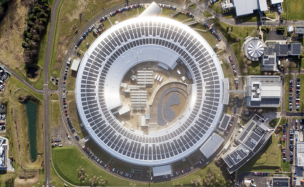Amid growing congestion in space, NATO must invest in real-time tracking of space objects to ensure the alliance can autonomously detect dangerous behavior—and prioritize interoperability to allow member nations to quickly share information.
It’s a subject that should be a top priority during discussions at the NATO Edge conference happening this week in Tampa, FL.
The need: Real-time space domain awareness (SDA) is critical to NATO for more than just avoiding collisions and promoting safe operations. It would also provide the alliance with a vital defense against adversaries such as Russia and China, who are fielding counterspace capabilities that can threaten systems in orbit and the ground operations they support.
Accurate and timely SDA empowers mission planners to adapt to changing conditions and ensure space-based services are reliable. By embracing real-time SDA, NATO would not only safeguard its strategic interests but also reinforce its ability to act decisively on the ground.
The risks of inaction: Without adequate SDA, NATO risks operational blind spots that could cause it to miss critical threats, such as orbital collisions or adversarial actions targeting space assets. These gaps can undermine the alliance’s ability to respond quickly and effectively to emerging threats, leaving NATO vulnerable to slower reaction times and diminished counterspace operations.
NATO must also help overcome the classification, language, and expertise barriers where allies try to coordinate on space domain awareness.
Why this matters: NATO recognizes space as an operational domain—one filled with an increasing number of satellites whose behavior is increasingly diverse, dynamic, and complex. The alliance must be prepared to act decisively to maintain operational readiness and strategic advantage as it pertains to understanding actions in the space domain and their impact on NATO ground operations.
Hands off: As space operations become more complex, NATO can’t go it alone. Modern space activity—with thousands of maneuvering satellites and orders of magnitude more debris objects—surpasses human capabilities for manual oversight at speed and scale.
Well-trained autonomous systems, acquired through collaboration with industry, could analyze vast datasets in real time, offering actionable insights that outpace traditional methods. By prioritizing investment into human-supervised autonomy development in support of space and multi-domain operations, NATO can reallocate human effort toward strategic decisions while delegating routine tasks to AI-driven agents. This hybrid model ensures both efficiency and oversight, positioning NATO to lead in a domain where autonomy is no longer optional but essential.
Speaking the same language: Using autonomous systems will require NATO to prioritize standardization and interoperability. Common data formats and visualization protocols—in addition to joint training for NATO members—will ensure allies can share surveillance and intelligence data seamlessly. Centralized platforms for real-time data sharing will enhance situational awareness and decision-making, allowing NATO to respond quickly and effectively to emerging threats.
Additionally, NATO must develop clear ethical guidelines and accountability standards for autonomous systems to make sure they comply with international law.
Brien Flewelling is the director of strategic program development at ExoAnalytic Solutions.




